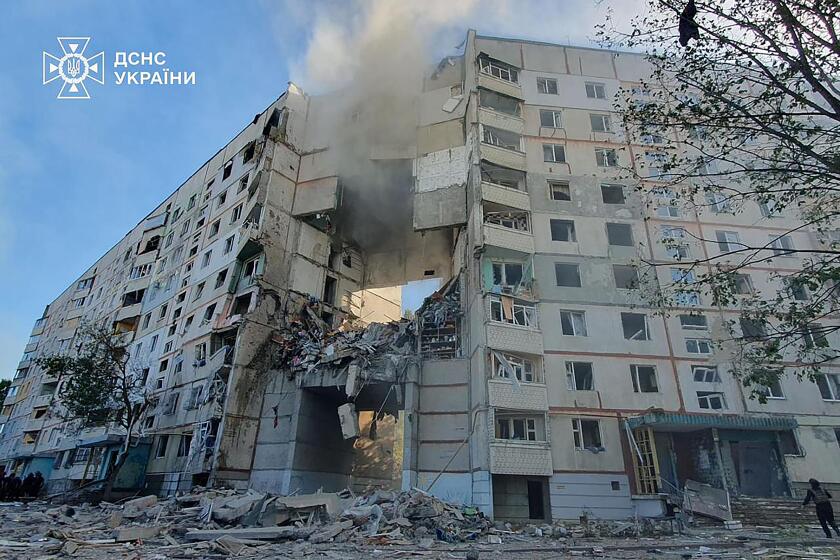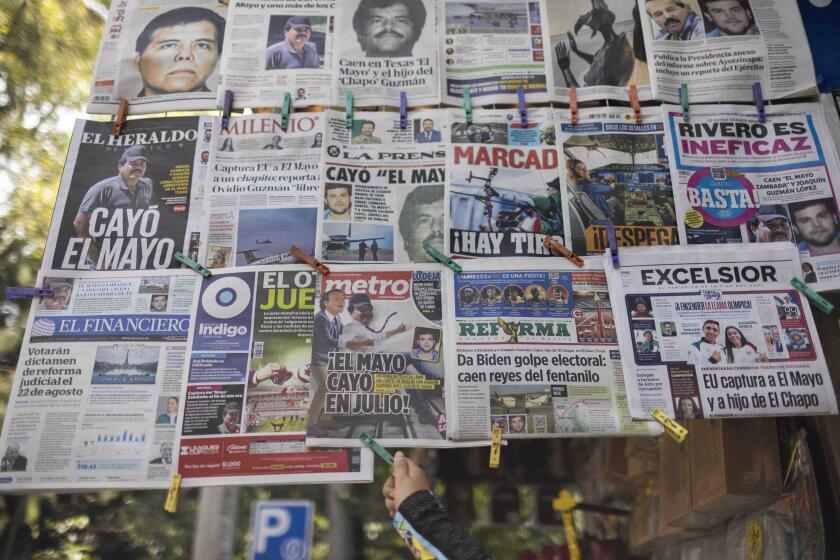Rebel Rockets Hit Kabul Hill Near Afghan Leaders’ Meeting
Four rebel rockets slammed into a Kabul hillside Sunday near an auditorium where Afghan leader Najibullah was addressing an assembly of pro-government tribal leaders and politicians that will elect a president and approve a new constitution.
Later, an obviously angered Najibullah, head of the ruling People’s Democratic Party, lashed out at the “blind firing and loud noises staged by the mercenaries of imperialism.”
In a significant confirmation of recent combat gains made by the moujahedeen rebels, Najibullah said the insurgents have cut off supplies to the city of Khost, 100 miles south of Kabul. He said that because of the effectiveness of U.S.- and British-supplied ground-to-air missiles used by the rebels, the government has been unable to fly supplies to the 40,000 residents of Khost during daytime hours.
Roads Blockaded
He also said that roads to Khost, an agricultural city near the border of Pakistan, have been cut and blockaded by rebels and the Pakistani government.
“We cannot supply the principal material needs of Khost,” he said.
Until recently, the government had described Khost as a totally secured “zone of peace.”
Meanwhile, there has been abundant evidence in Kabul in recent days that Soviet and Soviet-backed Afghan forces are mounting a major counteroffensive against moujahedeen positions in the Safed Koh Mountains surrounding Khost.
For the first time in the seven-year war, in which as many as 1 million people have died, Soviet SU-25 fighter bombers are making regular runs from Kabul airport.
“They are going every 20 minutes with bombs under their wings and coming back empty,” a Western diplomat in the capital said.
In the last two weeks, several large Soviet truck and armored vehicle convoys have been seen leaving Kabul, including a 300-vehicle convoy Saturday morning. Speculation at Western embassies here is that all were headed to Khost to supply combined forces attempting to break the rebel siege.
Sunday’s rocket explosions shook the auditorium at Polytechnical University where 1,430 delegates to a traditional Afghan “grand assembly” had gathered to choose a president and approve a new constitution.
One eyewitness said the rockets exploded on an unpopulated hillside less than a mile from the meeting site. The university campus was surrounded by Soviet tanks and armored personnel carriers.
After the explosions, Soviet security men rushed to the side of the Soviet ambassador attending the meeting. Soviet MI-2 helicopter gunships circled the campus.
Fired at Intervals
An Eastern European journalist quoted military officials as saying that the rockets were Chinese-made and had been placed in adjacent hills with timing mechanisms so that they would fire during a five-minute span.
The rockets were apparently the rebels’ answer to Najibullah’s announced “national reconciliation” policy, in which the grand assembly, modeled on similar gatherings staged in the past by Afghan kings in lieu of popular elections, is supposed to play a key role.
The policy is aimed at attracting home an estimated 4 million Afghan refugees now living in Pakistan and Iran. Refugees have been offered jobs, land and a chance to participate in government. Yet, even by government estimates, the response has been slow.
The new constitution under consideration by the delegates theoretically allows the creation of rival political parties. On paper, it would convert the government from today’s single-party regime into a presidential republic with a partially elected national assembly.
Since there are no other candidates for the office, it is virtually certain Najibullah will be “elected” president. Under the new constitution, the president will be commander in chief of the armed forces and have the authority to name the prime minister and one-third of the members of the national assembly.
More to Read
Sign up for Essential California
The most important California stories and recommendations in your inbox every morning.
You may occasionally receive promotional content from the Los Angeles Times.










